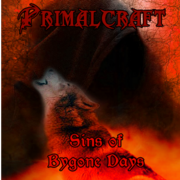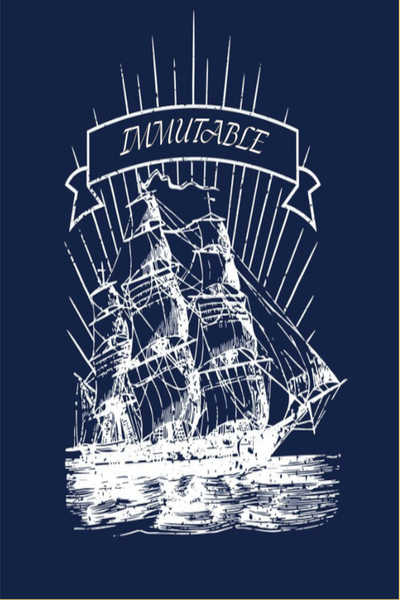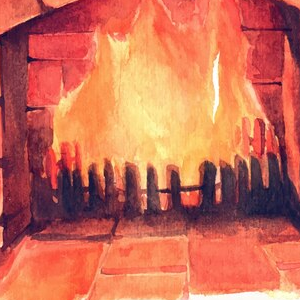The flames of the hearth snapped and cracked and showed Ballast only death.
He was seven years of age when the raiders came to his fishing village. They were smart—appearing in the night and moving in shadows and silence.
They set the modest huts of the village ablaze and cut down the fleeing residents. Most villagers died unaware that there was any attack at all.
The raiders moved swiftly and silently, like a noiseless symphony, with blade and bow as their instruments of choice.
Some murdered while others pillaged. Still others rounded and restrained women and children.
Soon cries could be heard, punctuated here and there by the CRUNCH of a collapsing hut.
Ballast’s own hut stood on the far outskirts of the village, opposite the shore, and so his was one of the last to be assaulted.
It is hard to say what first woke Ballast and his family from their slumber—the last peaceful rest any of them would have. Perhaps it was heat or smoke from the blazing fires, or else the rising din of shrieks and moans from their fellow villagers.
Before Ballast could wipe the dust from his eyes, he was in the arms of his mother, who was sprinting into the woods. Ballast looked back and saw his father for a moment, harpoon in hand, standing off against two armed strangers.
He then lost sight of the trio behind the trees as his mother continued to run, but Ballast heard his father’s bellow:
“Come at me, you savages!”
That was Ballast’s last memory of his father.
He and his mother fled through branch and bush deeper into the woods. Was there anyone chasing them? Their heavy breathing and drumming heartbeats deafened them to any potential pursuer. And so they ran.
They ran until reaching the foot of a high hill, when Ballast’s mother finally lowered him to the ground. They stood there for a few moments, his mother bent over with hands on knees and he staring blankly. They were both too stunned to express any grief—tears would come later.
“I know a cave we can hide in. It’s up there,” Ballast said, pointing up the hill.
His mother nodded.
They continued their trek, now uphill, with Ballast moving on his own alongside his mother.
He often wondered in the years since if things would have been different had they not paused at the bottom of that hill.
The cave would be a good hideaway. The entrance to it was little more than some curved rock dug into the side of the hill, facing an open cliff, and one could only reach it through a narrow path up.
Ballast was now in front, with his mother following a few feet behind.
He had discovered the cave with some friends last spring, and he was certain none of the adult villagers, let alone these invading strangers, were aware of it.
As they neared the entrance, Ballast looked back at his mother and was filled with dread.
Directly behind her was one of the strangers he had seen with his father. Blood flowed from the side of his head and blinded him in one eye. The other was filled with hate.
The stranger lunged at his mother, knocking her to the ground and pinning her there.
He lifted a dagger in the air, prepared to stab her in the back, but she quickly spun and caught hold of his arm.
His mother was a fierce woman, but she was no match for this stranger in a feat of strength.
Ballast knew this. With two hands he grabbed a large stone and swung it at the man’s head.
The stone connected with its target but only for a glancing blow.
The man grabbed Ballast hard by the shirt with his free hand.
“NOOO!” his mother yelled.
She managed to knock the man off balance and freed Ballast from his grasp. The two scurried away, but the stranger followed.
Not knowing where else to run, Ballast and his mother hurried up the narrow path leading to the cave entrance.
Each time they looked back, their pursuer appeared no further away than the time before, despite his more deliberate movement.
When they finally reached the cave, Ballast’s mother said, “Go deep inside and don’t say a word. Do not even think about leaving until you hear my voice or see daylight.”
Ballast protested. “No, I can help…”
His mother ignored his plea. She stooped down for a quick embrace, said “I love you,” and shoved him into the cave. “Go!”
Ballast retreated into the darkness, but not so far that he couldn’t see the cave mouth.
His mother drew a small object from her night dress, a simple kitchen knife she was wise to grab while retreating from their hut. She turned to face the stranger, who by this point was nearly to the cave entrance himself.
His mother withdrew from Ballast’s view to engage the man, so he did not see as she leapt at the man, knife first, with unrestrained fury.
Perhaps it was his blood loss, or the surprise to see his prey turn and attack him, but the stranger failed to react in time and yowled as she slid the knife into his gut.
Ballast’s mother quickly pulled the knife out to stab him again, but the man shoved her backward with perhaps all that was left of his strength before collapsing. The force knocked her back in view of the cave entrance, so Ballast could watch helplessly as his mother took an uncertain step on the narrow path and trip over the edge of the cliff.
Ballast rushed to where his mother had just been and peered over the ledge. Most of her was hidden within brush, but he could make out the shape of her head and one arm sticking out as if she was waving to him. But she wasn’t waving. She wasn’t moving at all.
His tears came quickly then, running down his face and dropping beyond the cliff to his mother’s still body below. He remained in that spot for some time, sobbing.
If their pursuer still had breath, he could have taken Ballast’s life in those moments. The boy would not have fought back. He would have welcomed a reunion with his mother and father.
But the violent stranger was dead, and so too were his parents.
Ballast, now twenty-five, blinked away the memories. He poked at the burning wood of the hearth in a feeble attempt to bury his past in its ash.
“Oye, another pint?” asked the barkeep from across the room.
Ballast shook his head. “No.” He needed to be up before the Sun tomorrow.
He rose from his chair, still in uniform, which consisted of tan trousers and a high-necked cloth shirt underneath a brilliant orange vest. The vest was buttoned only halfway up his torso, stopping where the lapels began. Life at sea kept him fit, and he wore the uniform well.
Ballast put on his short brown overcoat, featuring a stylized embroidery of a compass rose on the left shoulder.
He paid his tab and exited the tavern, leaving behind the barkeep and some half dozen locals, including a boisterous trio in one corner playing cards. They had tried enticing him, unsuccessfully, to gamble away his wages.
The air was brisk outside the tavern, smelling of the salty sea, and Ballast was glad for the coat.
He walked to the docks, encountering only the occasional passerby, and a cluster of revelers outside a pleasure house. He recognized a few members of his crew but did not break gait to speak with them. They, along with the pleasure hosts, would no doubt attempt to convince him to stay, something he had no interest in doing.
Ballast rounded the corner of the last row of buildings before the docks, and his view opened up to rows of boats of various shapes and sizes illuminated by moonlight.
He walked down the steps and to the right, toward the Hare’s Breath, the two-masted survey ship that he had called home for the better part of three years. He was more comfortable on the vessel than in any other place he had lived since his family’s burnt down hut.
It wasn’t the largest ship on the docks, but it may have been the best maintained thanks in no small part to Ballast’s efforts as boatswain. It was among his duties to keep the Hare’s Breath in tip top shape for sailing, an imposing task given how much time the ship spent at sea, but he was equal to it.
Ballast stepped up the gangplank and moved slowly to the stern of the ship to gaze upon the inky blacks and dark blue hues of the night’s sky meeting the water’s surface. The horizon was an empty void, but next morning’s dawn would reveal the looming threat to the west.
In less than a week this coastline would be crushed.










Comments (0)
See all